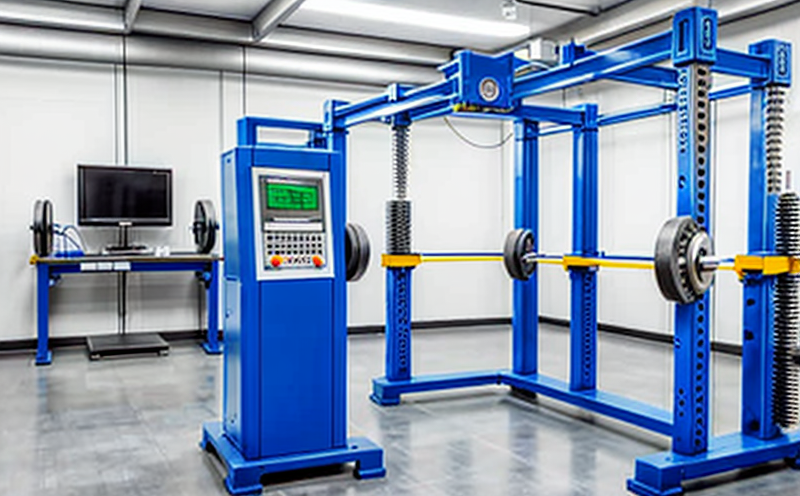Mechanical strength testing for orthopedic implants
The Crucial Role of Mechanical Strength Testing in Ensuring Orthopedic Implant Safety and Effectiveness
As the demand for orthopedic implants continues to rise, manufacturers must prioritize ensuring the safety and effectiveness of their products. One critical aspect of achieving this goal is through mechanical strength testing. This laboratory service, offered by Eurolab, plays a vital role in verifying the durability and reliability of orthopedic implants.
Mechanical strength testing involves subjecting implants to various loads and stresses to assess their ability to withstand normal use and potential wear and tear. The results provide valuable insights into an implants performance, enabling manufacturers to identify areas for improvement and ensure compliance with regulatory requirements.
Why Mechanical Strength Testing Matters
The consequences of a faulty orthopedic implant can be severe, leading to patient harm, product recalls, and significant financial losses for manufacturers. Inadequate testing can result in implants failing prematurely, compromising the health and well-being of patients.
Mechanical strength testing is essential because it
Ensures compliance with regulatory requirements, such as those set by the FDA and ISO standards
Verifies an implants ability to withstand normal use and potential wear and tear
Identifies areas for improvement in design or material selection
Enhances patient safety and trust in orthopedic implants
Protects manufacturers from liability and reputational damage
Key Benefits of Mechanical Strength Testing
Eurolabs mechanical strength testing services offer numerous benefits to businesses, including
Improved product reliability By subjecting implants to various loads and stresses, manufacturers can identify potential weaknesses and design improvements.
Enhanced patient safety Testing ensures that implants are designed to withstand normal use and wear, reducing the risk of premature failure.
Regulatory compliance Eurolabs services help manufacturers meet regulatory requirements, minimizing the risk of product recalls and liability.
Cost savings Identifying potential issues early on reduces the need for costly redesigns or revisions.
Competitive advantage Demonstrating a commitment to safety and quality can enhance a manufacturers reputation and market share.
In-Depth Examination of Mechanical Strength Testing Methods
Eurolab employs a range of mechanical strength testing methods, including
Tensile testing Measures an implants ability to withstand tensile forces
Compression testing Evaluates an implants resistance to compressive loads
Cyclic loading Simulates the repetitive stresses implants may experience during use
Fatigue testing Assesses an implants ability to withstand repeated stress cycles
These methods provide a comprehensive understanding of an implants mechanical properties, enabling manufacturers to make informed design decisions and optimize their products.
QA Frequently Asked Questions about Mechanical Strength Testing
Q What types of orthopedic implants require mechanical strength testing?
A All types of orthopedic implants, including joint replacements, spinal devices, and fracture fixation systems, benefit from mechanical strength testing.
Q How do I know if my implant design requires mechanical strength testing?
A Any new or revised implant design should undergo mechanical strength testing to ensure compliance with regulatory requirements and optimal performance.
Q What are the typical costs associated with mechanical strength testing?
A The cost of mechanical strength testing varies depending on the specific services required, the number of samples tested, and the complexity of the analysis. Eurolab offers customized packages to meet individual business needs.
Q How long does mechanical strength testing typically take?
A The duration of testing varies depending on the method used, the sample size, and the level of detail required in the report. Typically, results are available within a few days to several weeks.
Conclusion
Mechanical strength testing is an indispensable tool for ensuring the safety and effectiveness of orthopedic implants. Eurolabs comprehensive laboratory services provide businesses with peace of mind, knowing that their products have been rigorously tested to meet regulatory requirements and optimize performance.
By partnering with Eurolab, manufacturers can
Enhance patient safety and trust
Improve product reliability and compliance
Reduce costs associated with redesigns or revisions
Demonstrate a commitment to quality and innovation
Dont compromise on the integrity of your orthopedic implants. Trust Eurolabs expertise in mechanical strength testing to ensure the highest standards of safety, effectiveness, and regulatory compliance.




